“It’s punk looking, which is Dada looking, which means it’s even older than that,” Melissa Scaduto explains about the idealism behind S. Product’s aesthetics. A new heavy synth project by the performer (and drummer of punk band Sextile) and Private Selection label co-founder Kyle Hamon of (the duo uses nostalgia to construct spaces in opposition to dehumanizing capitalist processes. Individual catharsis has become a means for creating a sense of freedom and value as the band navigates the underground scenes in Los Angeles.
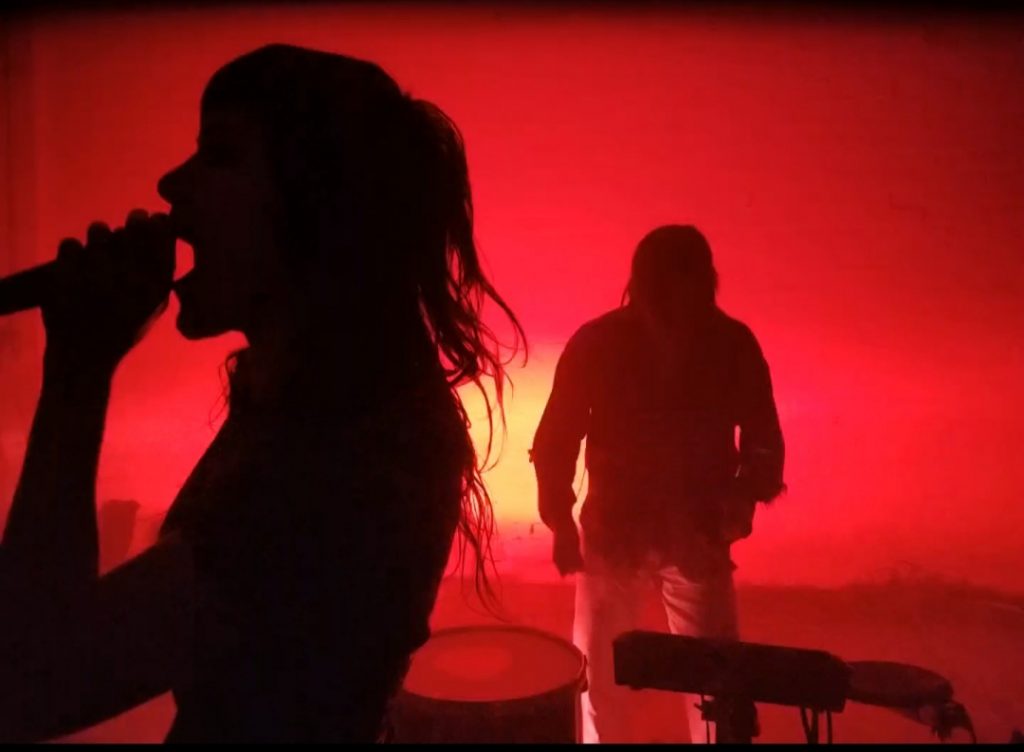
S. Product started as a friendship between 10-minute cigarette breaks at the Hollywood record store Amoeba Music, evolving into a project of trust, care and presence for fluidly exchanging ideas, and inspiration. Drawing from the mentality of Chica Gogo and New Wave Theater, the duo looks to grass roots as a generative source for inclusivity. “I wish we had more of a community sense, which they had at that time,” Scaduto says of the aforementioned New York No Wave scene of the 70s. A vivid nostalgia for this subcultural era inspires S. Product’s sound, visual presence, and general attitude. They infuse reflections on the current Los Angeles underground with past structures that had previously provided a sense of optimism and accessibility. Nostalgia is wielded as a tool for projecting the future.
From a photographic play on Psychic TV, 39 Clocks and Invisible Man to borrowing SPK’s fluid identity and conscious illegibility, the illustrious post-industrial tradition is integral to creating an open-ended continuum of redefinition. Over Skype, S. Product elaborates on some potential variables for their latest iteration of ‘S’: Structure, Situationist, Socio-Economic, Support.
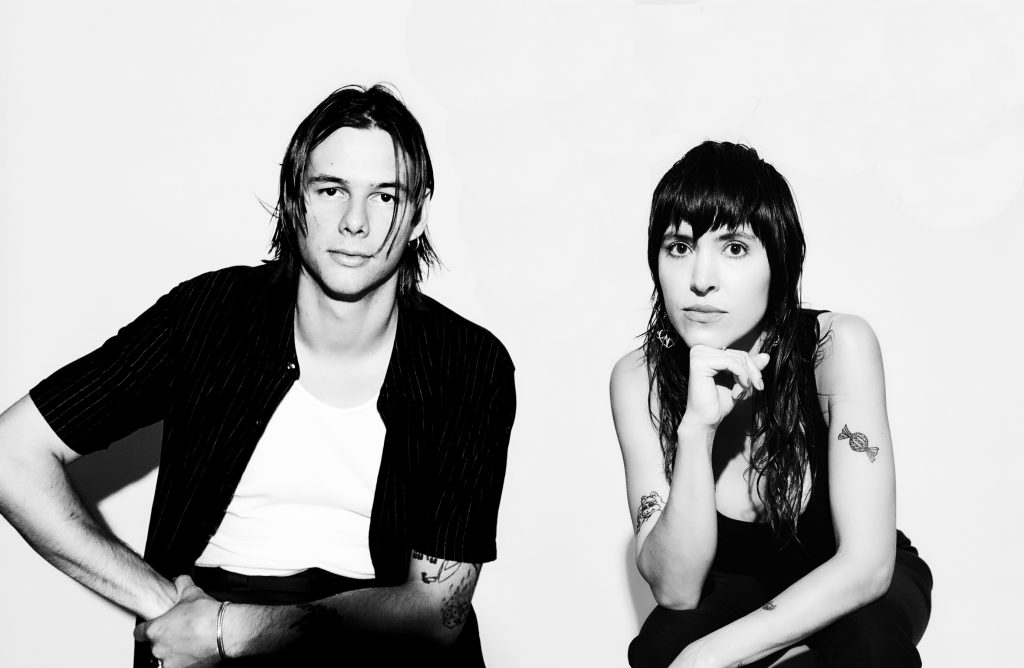
**Where does the nostalgia for the 80s come from?
Melissa Scaduto: A lot of the music I like is from the 80s, and there are a lot of particular sounds and images that come from the 80s that I love. There’s something really classic about it, and you can’t go wrong with classic. Something about the 80s is just untouchable to me—it’s punk looking, which is Dada looking, which means it’s even older than that.
**Do you have a Dada practice in terms of how you think about making stuff?
MS: Sort of in that Dada was about using what you have. I wish we had more of a community sense that they had at that time. I feel like we do in LA, but I don’t feel like we are currently part of a crop of artists or anything like that. That’s where it lacks, in the community basis, because they had a club that they all hung out at.
Kyle Hamon: Cabaret Voltaire.
MS: Yeah, what a great name and a great band. I guess the closest thing for us in LA would be like Non-Plus Ultra—it’s the most community-based place that I’ve found promoting all different kinds of art for everybody.
** The world seems to be your oyster in terms of genre and places for you to exist. while I know you are both established in your respective scenes, where would you place S. Product in the current landscape of the LA music world?
MS: I don’t think a lot of bands in LA sound like what we’re doing right now. There are a couple of really good synth pop projects out there right now like that band Riki. When I met her it gave me hope that maybe there’s a whole group of cool women out there, and I just haven’t met them yet.
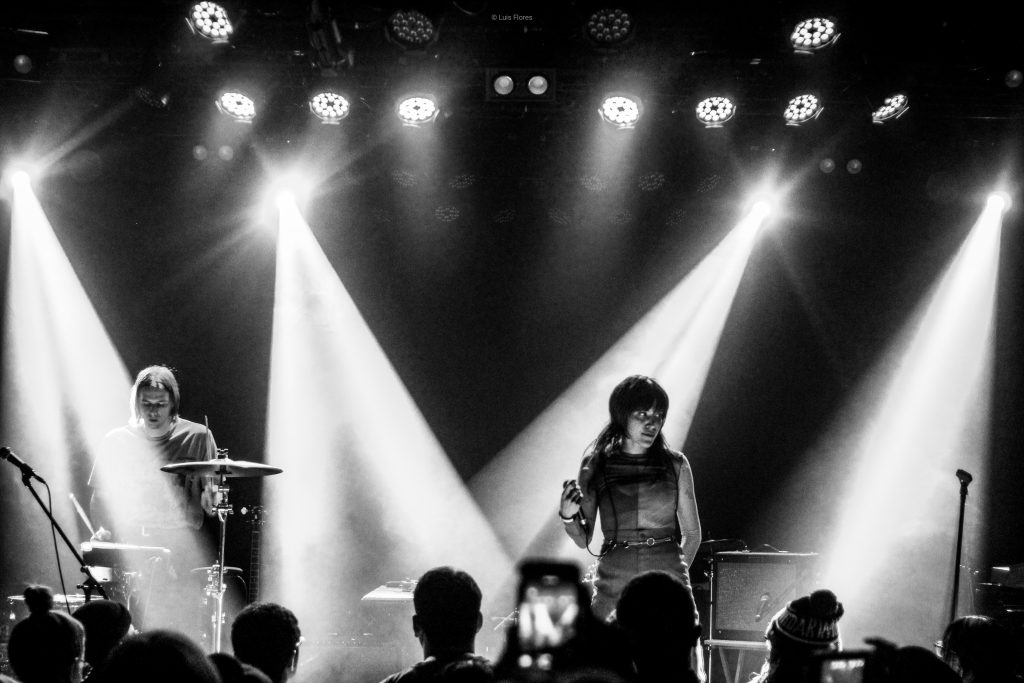
KH: I hadn’t felt a large community within the band scene. I was more familiar with the after-hours warehouse circle, and there is a community there– but this felt different. There’s a lot of competition in LA, which I think really curbs the possibility for community.
**If you could write a manifesto for what a community is or should look like– what would you put on that list?
KH: Someone years ago told me: ‘Nobody’s winning unless the whole team is winning’ and it’s something that I’ve always valued very highly because it’s true. What good is it if one person is on top, and all your friends are still struggling– that’s no fun! It’s much better if we’re all winning and ballin’ out and are able to create with, learn from and inspire each other.
MS: I completely agree, and also an ability to work with each other. I think because we live in a world where Instagram is so prevalent, there’s this focus on being a narcissist, which will never breed community if you’re always thinking about yourself.
**What does this collaboration bring out in each of you that is new from previous projects?
MS:. My previous band mate never showed me Ableton or anything like that, so I’ve actually learned a lot of that with Kyle. I’ve got 22 years of smoker’s cough so my voice is pretty fuckin’ rugged. Honestly getting to the point of acceptance and trying to use what I have instead of thinking I can’t sing is completely new for me.
KH: The idea of a collaboration is fairly new for me. I think that when you’re in a collaborative process with someone making music and you spend weeks to months on a track, there’s a lot of trust involved. You have to step outside of your comfort zone for where you see the track going and open up to the idea of someone else taking the lead on it for a second. I’ll also add that Mel seems to so naturally have a business mindset. I definitely think about that kind of stuff differently now. She just has a way of understanding the worth of our art, and is able to really push that.
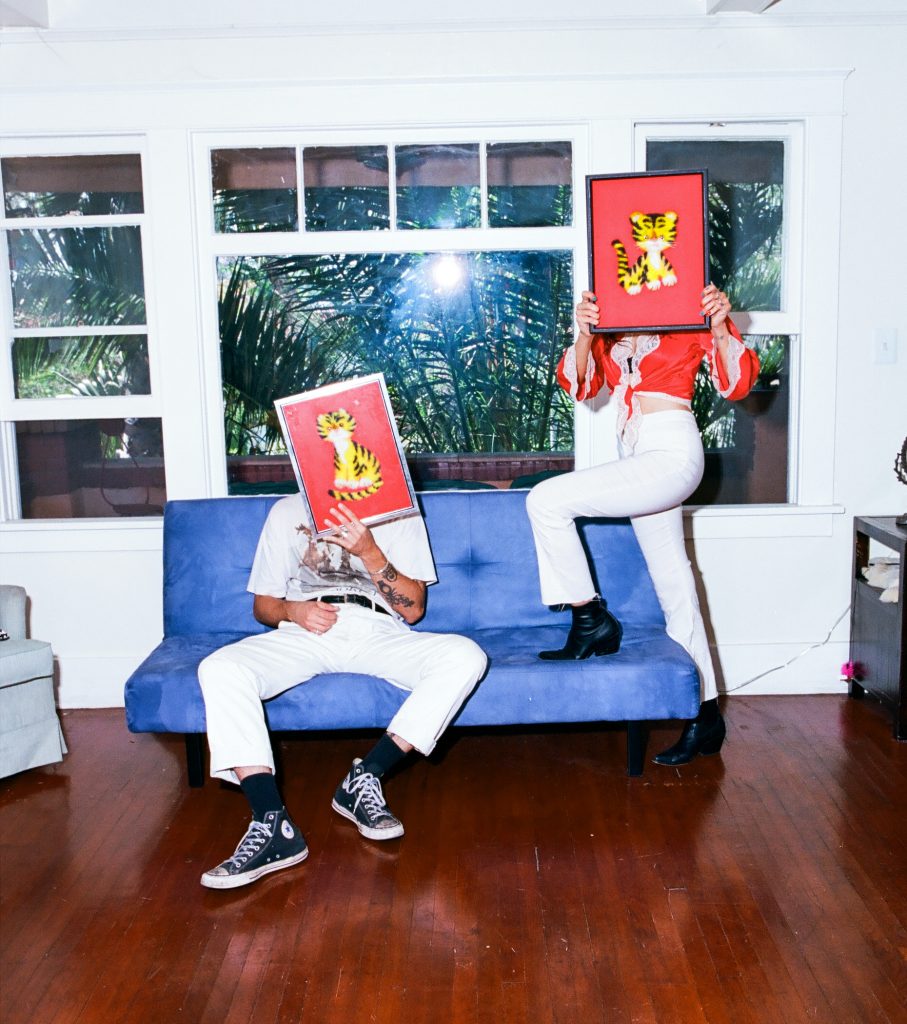
MS: Lydia Lunch had this saying, ‘if you’re making music to make money, you’re not making art, you’re making commerce’. And although I very much agree with that, I don’t think there’s any shame in trying to make money off of your art. I asked Penny Rimbaud from Crass if it would be selling out when a TV show was offering to buy our song, but he just said, ‘it doesn’t matter how much money or what they are offering. If they’re not making you change your art, then you’re not doing anything wrong’.
**Where does the name S. Product come from?
MS: I initially said ‘Swell Product’ but then we just went with S. Product because we thought the S could mean anything. It doesn’t really have much of a meaning, but the idea comes from SPK, who would change what SPK meant every time they released an album. And I like that because they started out as a weird industrial band, and got very flamboyant, overproduced, gay 80s—all of it is sick—and I love that they used that opportunity to transform themselves as a band on a constant basis.
**You have a dynamic fun live performance feeling. Despite having a lot of electronic components, there’s this sort of gritty feeling of being human—and it seems like there’s an importance to physical presence at your shows.
MS: I truly believe in a live performance. That is the one real place where not only I get to be free, but everybody gets to be free. Dancing has to be one of the most freeing things you can do. To be able to do it in a public space and just go bananas and feel the energy in the room. I’m getting excited just thinking about it! Although I really appreciate everyone doing their live streams, I just don’t see how you could ever replace the organic feeling of being in a room with people. I really look forward to the time where we can do that because we will all be so grateful for it.
**Suicide Beat has a much more dreamlike and tender quality. Lyrically, it seems to be written for someone no longer with us, and I’m curious if there are any insights you can give us in terms of the nature of catharsis / coping within creative processes?
MS: That’s the last song that we wrote. It’s about my friend Eddy that passed away. We used his synthesizer on that track that his mom gave me. A lot of the tracks that we made in the beginning are aggressive —I’m going to go ahead and even say angry? We were both dealing with kinda shitty people we might have engaged with in the past.
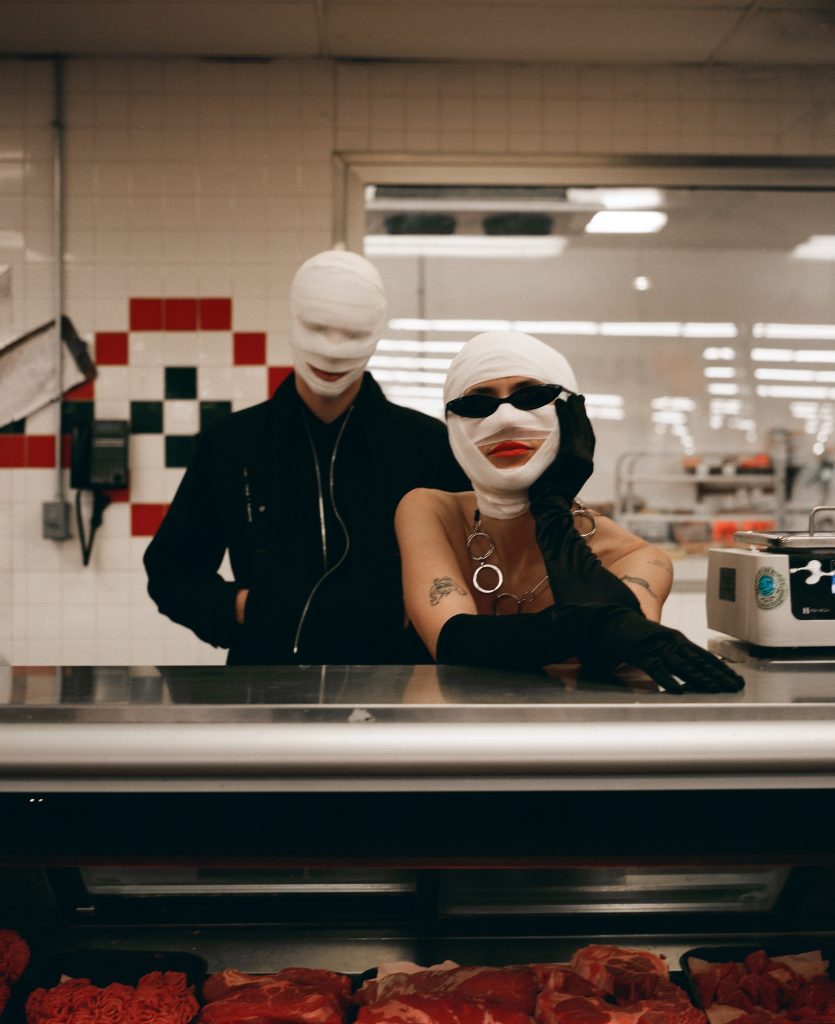
KH: Originally, the title comes from us just wanting to make a track that sounds like Suicide and it just kept morphing into what it is now. It felt like a good last track to end the record with because it kinda does sound completely different from every other track that’s on the EP.
**The ‘S’ can function for different albums –—what would you say the ‘S’ stands for here? Is it still “swell” or has it changed?
MS: The shirt that I made had listed out a ton of ‘S’ words that Kyle and I laid out, but I don’t know what ‘S’ word resonates with me right now. When my friend Reggie was in our music video he kept saying ‘Sssss Product’, and it was actually something he brought up to me right away when we first made our Instagram because Kyle made it with three ‘S’s. I think people have a tendency to drag the ‘S’ out now, so it’s almost like the ‘S’ is its own thing, like a sound rather than a word.
KH: I wouldn’t associate it with any particular word, really. I haven’t thought about what the ‘S’ could be used for on this particular record. You can listen to it for yourself and come up with your own interpretation.**
S. Product’s Suicide Beat EP was released via Terrible Records on July 10 2020.













